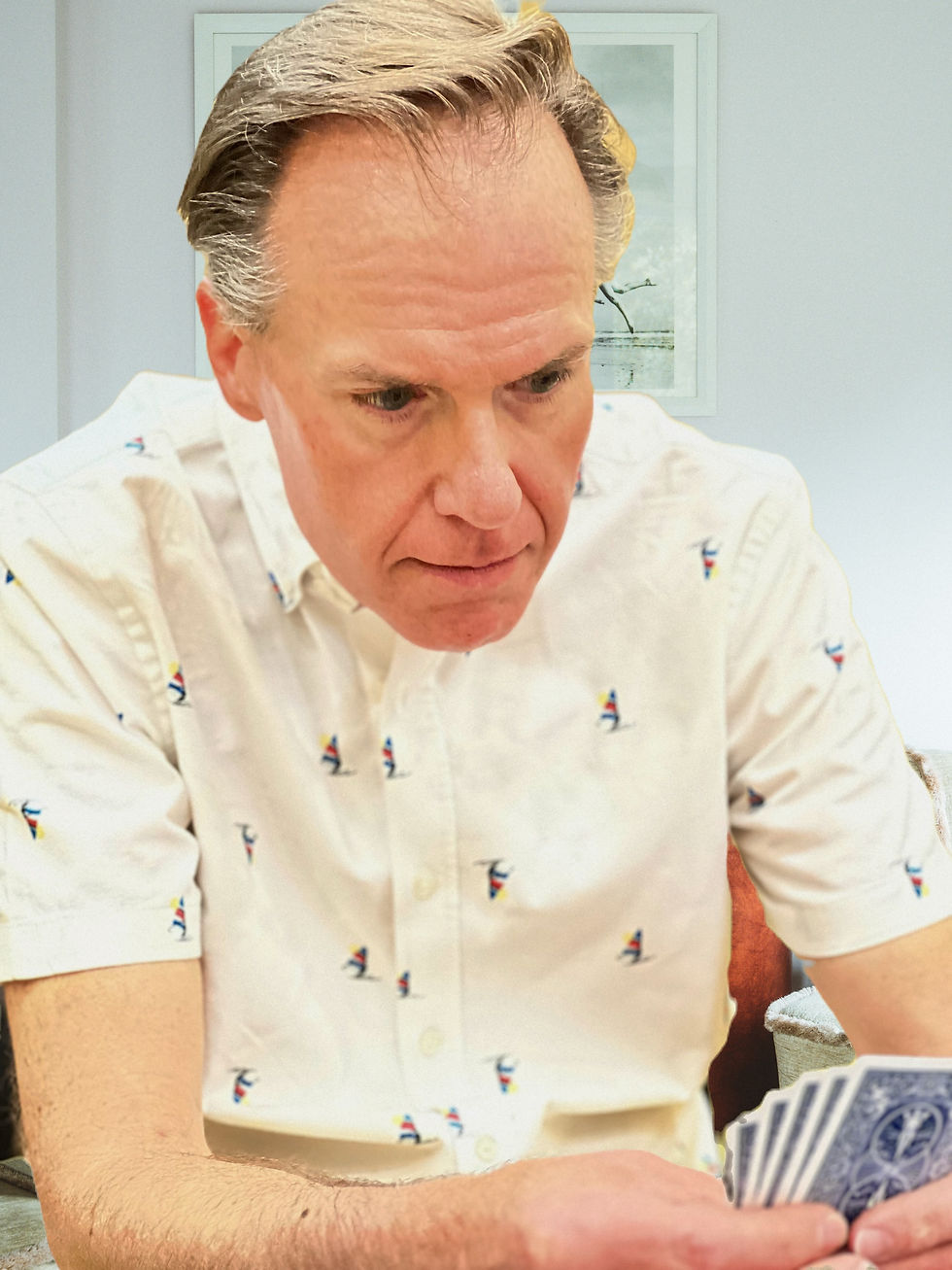cheswick gets To Keep His Hair
- pptc

- May 31, 2023
- 3 min read
When I was a sophomore acting student at Illinois Wesleyan University, I was cast in my first production, One Flew Over the Cuckoo’s Nest. Freshmen acting students were not permitted to be cast in productions, so I was very excited to be given my first chance at the IWU stage. I played Ruckly in that show. As part of the look for the character, my hair was cut off. (My friend Andy, who played Billy, also had to have a very short crew cut hair style for the show – and I should now apologize to Joe and James if I’ve given Richard any ideas….)

A few years later, one of my favorite professors retired. He gave a speech to the theatre students, where he told us some of the memories that he would take with him from his many years of teaching at IWU. One of the memories he mentioned was my performance in that show. To this day, it’s the best review I’ve ever received.
I haven’t often had the opportunity to revisit a play I’ve worked on before. Most shows I’m cast in, it’s the first time I’ve worked with these characters and this script. I know many actors who have performed in shows multiple times in various productions, and I wondered what that would be like. One Flew Over the Cuckoo’s Nest is a play that is so rich with characters, so pointed in its commentary, that you can look at it from several different angles and always find something new. The fact that I am now much older than that sophomore at IWU certainly changes my viewpoint, as does the opportunity to look at the play from a different set of eyes, those of Charles Cheswick. Plus, I get to keep my hair.
Cheswick is frightened and frustrated by a world he can’t control, which manifests in bursts of anger. He doesn’t fit into the parameters of what society thinks of as acceptable behavior. He is base. He is suspicious. He is often a bully, but like so many bullies, backs down when challenged. As Richard describes him in rehearsals, “he is a brat." He is not at all like me.
A lot has been written about Richard's "non-audition" audition process. This will be no exception. With most auditions, the actor is asked to read scenes from the script. Sometimes, the actor will be asked to prepare a monologue to perform. Richard asks for neither of these; instead, he talks to each actor. Just a conversation. He seems to be trying to get a sense of who each actor is as a person. This is a typical approach in theatre school, but it's unusual in a suburban theatre company. But then he goes one more step - he tries to cast the actors in roles they might not be considered for in other productions. See, many directors try to cast actors who are close to how they see the characters. Richard pushes the actors to stretch themselves out of the typical. Working in Richard's show forces the actor to stretch themselves, to find new ways to build characters. He makes us strip away the artiface and conventions that you see so often, and create new, fascinating characters that truly live on stage in the world of the play. As an actor, it's the way I want to work.
Coming back to revisit a play I've done before might sound like an attempt to relive an old experience. But this is so much better, so much more. The setting is familiar, but this is its own unique experience, its own life.




Comments